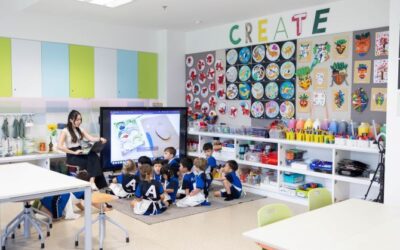Building Connection and Community: How CIS Counselors Foster Emotional Growth and Inclusion
Catalina Gardescu of Copenhagen International School (CIS) interviews the school’s two Primary Counselors, Matt Dahlman and Jodi Chee.
Catalina Gardescu: Can you tell us a bit about yourselves?


Matthew Dahlman: I’m Matt Dahlman. I’m one of the Primary School Counselors at CIS. This is my third school year at CIS. Before moving to Denmark I was living in the United States where my previous school was a public school in Northern California. Prior to that, I was getting my master’s degree in school counseling and working in the juvenile justice school system in Southern California. And previous to that, I worked in a psychiatric facility for kids ages 3 to 18.
…Read the rest of this article here on our sister website Relocate Global




